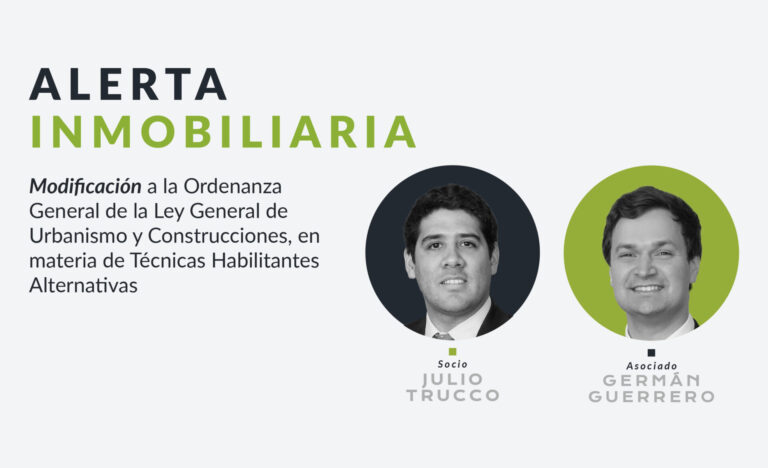On November 29, 2024, the new Law on Streamlining Construction Permits (hereinafter, the “Law”) was published in the Official Gazette. The Law will partially come into effect on January 14, 2025, with additional provisions for special entry into force. As its title suggests, the Law aims to expedite the processes for obtaining construction permits and alleviate the burden of applications submitted to Municipal Works Departments (DOMs).
The Law introduces the following main modifications:
1. Expansion of Powers for the Regional Ministerial Secretariat of Housing and Urban Development: The Secretariat is empowered to issue more permits and certificates, including those related to real estate co-ownership, in the absence of a Municipal Works Director. It is also granted broad oversight powers over Municipal Works Departments, covering internal operations, and is authorized to handle initial appeals against DOM resolutions on construction permits and other related matters.
2. Responsibilities of Professionals: Adjustments are made to the responsibilities of professionals in charge of architectural, structural calculation, and soil mechanics projects.
3. Exceptions to Permits: The General Ordinance on Urban Development and Construction will outline cases where construction, reconstruction, repair, alteration, expansion, or demolition of buildings and urbanization works will not require DOM permits.
4. Requirements for Permit Issuance: The Law supplements the documentation and requirements the DOM Director must verify before authorizing or granting construction permits.
5. Publication of Permits: Municipalities are required to publish, by the 5th business day of each month, a resolution from the DOM listing all permits and authorizations granted in the previous month on their websites.
6. Extension of Deadlines and Negative Administrative Silence: The deadline for the DOM to respond to construction permit applications for projects with an occupancy load of 1,000 people or more is extended by 60 days. This deadline can be halved if there is a favorable report from an independent reviewer. If the deadline passes without a response, applicants may formally request that their permit application be deemed rejected.
7. Appeals Procedure before the Regional Ministerial Secretariat of Housing and Urban Development: A procedure is established for appealing DOM resolutions. The first instance is administrative, handled by the Secretariat, and the second instance is judicial, before the corresponding Court of Appeals. The Law repeals municipal jurisdiction over such appeals, removing mayors from the process, leaving appeals to the administrative (SEREMI) and judicial levels.
8. Deadlines for Real Estate Registrars: Real estate registrars are given a maximum of 20 days to register titles in property, mortgage, encumbrance, and interdiction and prohibition to transfer records, as well as marginal annotations. If objections arise, the deadline is extended by 10 days from the re-submission.
Entry into Force:
The Law outlines different timelines for the implementation of its provisions:
- The main group of provisions will come into effect on January 14, 2025, with the Urban Development Division providing further guidance through circulars.
- The second group of provisions will take effect on May 30, 2025. These include Article 118 of the General Urban Development and Construction Law (LGUC) on DOM deadlines for granting construction permits, the new provision for independent reviewers, negative administrative silence regarding permit approvals, Articles 118 bis and 118 ter outlining the administrative and judicial stages of appeals, and the exclusion of municipal illegality appeals for construction permits, among others.
- The third group of provisions will take effect upon the publication of amendments to the General Ordinance on Urban Development and Construction regulating such matters, including sworn statements for the start and completion of works
If additional information on this matter is required, please contact Julio Trucco Vera (jtrucco@jdf.cl) and Rafael Valdivieso Bulnes (rvaldiviesob@jdf.cl).






